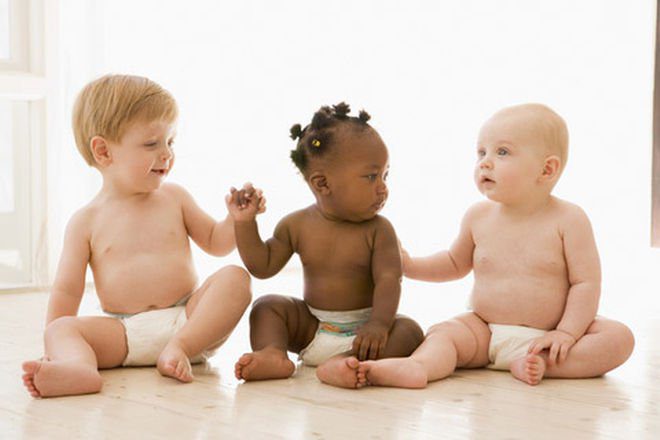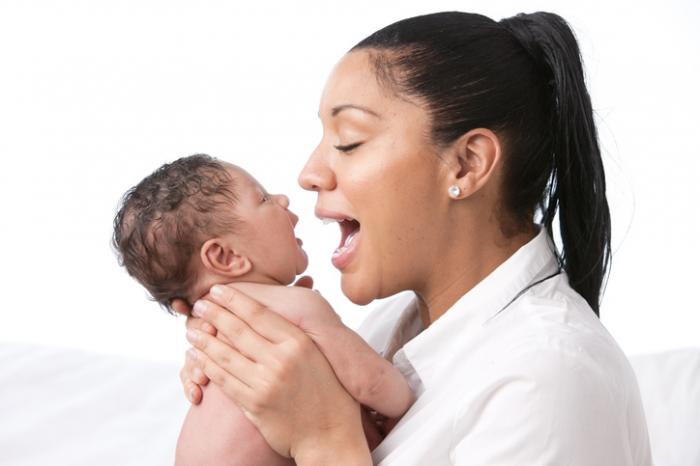OXYTOCIN AND TRUST PATHWAYS OFTEN SET THROUGH GENERATIONS

A study done by the University of New South Wales, UK, says women with troubled maternal relationships have lower levels of the hormone oxytocin and are more likely to have difficulty bonding with their own babies. Apparently, “trust pathways” are set in infancy and the quality of the mother-child bond repeats itself down the generations. […]
MOTHERS’ RESPONSES TO BABIES’ CRYING: BENEFITING FROM AND GETTING OVER NEGATIVE CHILDHOOD EXPERIENCES
Infants whose mothers respond quickly, consistently, and warmly when they cry have healthier emotional development than infants whose mothers are less sensitive to their cries. A new study has found that mothers whose childhood experiences with caregivers was positive and those who have come to terms with negative experiences are more infant-oriented when they see […]
TOUCH INFLUENCES HOW INFANTS LEARN LANGUAGE

Tickling a baby’s toes may be cute but according to studies it’s also possible that those touches could help babies learn the words in their language. Research from Purdue University shows that a caregiver’s touch can help babies to find words in the continuous stream of speech. “We found that infants treat touches as if […]
BRAIN-IMAGING STUDY ADDS NEW EVIDENCE THAT INFANTS TRACK OTHER PEOPLE’S BELIEFS
A brain-imaging study offers new support for the idea that infants can accurately track other people’s beliefs. When 7-month-old infants in the study viewed videos of an actor who saw—or failed to see—an object being moved to a new location, activity in a brain region known to play a role in processing others’ beliefs changed […]
RESEARCHERS STUDY INFANT-DIRECTED SINGING
In our Infant Massage classes, we incorporate parents singing to their babies as soon as the parents feel confident in delivering many of the strokes. When I was developing our program, I found that singing a slow, repetitive, rhythmic lullaby helped both myself and my baby to relax and have fun with the massage. I […]
BABIES CAN TELL HOW BADLY YOU WANT SOMETHING: PART ONE

According to a new study from MIT and Harvard University, babies as young as 10 months can assess how much someone values a particular goal by observing how hard they are willing to work to achieve it. This ability requires integrating information about both the costs of obtaining a goal and the benefit gained by […]
BABIES RETAIN THEIR EARLY EXPOSURE TO FOREIGN LANGUAGES

Babies may be more language-savvy than scientists thought: A study of people who were adopted as babies suggests that infants younger than 6 months may grasp crucial abstract information about their native tongue. They seem to store this information for years even if they don’t hear their native language in the interim. In the study, […]
DISLIKE FOR UNFAMILIAR GROUPS OF PEOPLE IS LEARNED
A new study suggests that although we are inherently drawn to familiar groups of people, having dislike for unfamiliar groups appears to be a learned behavior. “Persistent discrimination and conflict across cultures has led psychologists to question whether we are naturally inclined to like people who are similar to ourselves and to dislike those who […]
DAD’S INVOLVEMENT WITH BABY EARLY ON IS ASSOCIATED WITH A BOOST IN MENTAL DEVELOPMENT
Fathers who interact more with their children in their first few months of life can have a positive impact on their baby’s cognitive development. In a study, published in the Infant Mental Health Journal, researchers from Imperial College London, King’s College London and Oxford University looked at how fathers interacted with their babies at three […]
BABIES’ GAZE SUGGEST WE ARE BORN UNDERSTANDING COLOR
Unless you’re colorblind, you probably have a pretty good idea of what red, green, and blue are. Yet those labels are arbitrary divisions of the color spectrum; there’s no definitive point where the wavelengths of light we call orange turn into red. So cognitive scientists have long wondered whether we learn our labels from our […]
